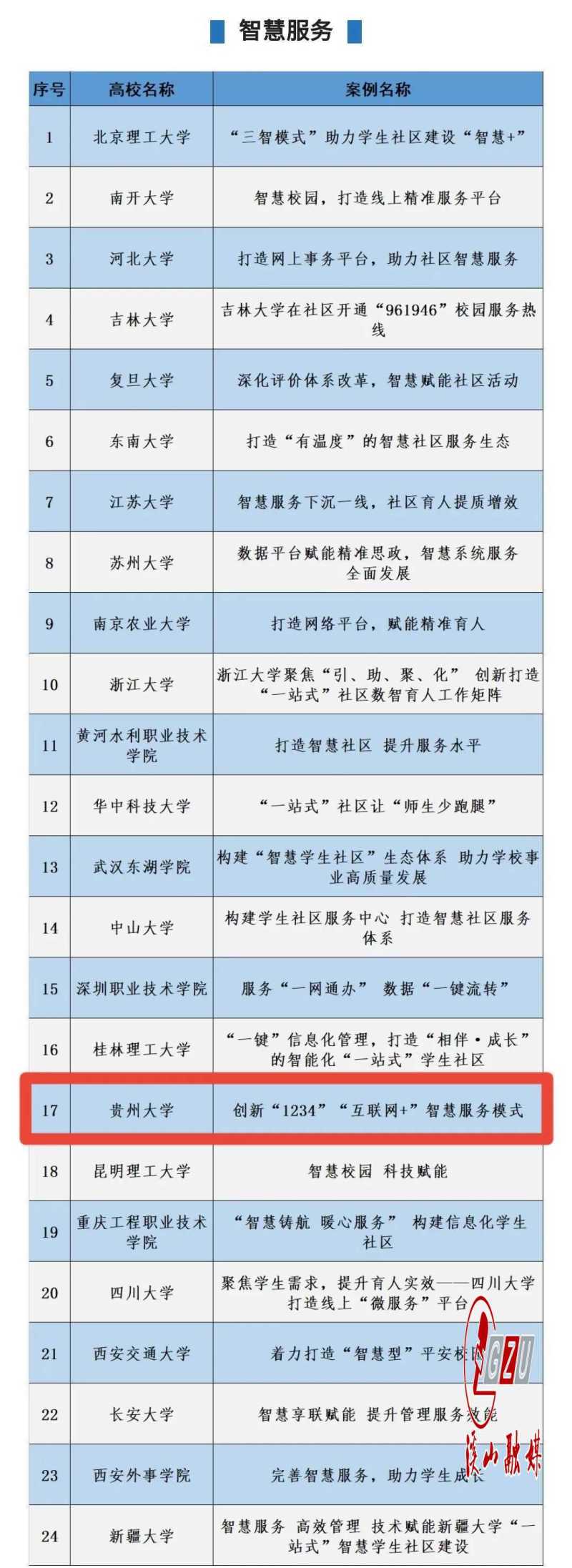According to a notice issued by Department of Moral Education of MOE on December 27, after multiple procedures including university/college recommendation and external expert review, 120 cases themed on demonstrating “one-stop” student communities from universities and colleges across the country were selected to be included into the repository of the National University Ideological & Political Work Net and to be displayed on the cloud platform on the development of comprehensive management models for “one-stop” student communities. Two cases submitted by GZU were included in the selections.


The first case was titled “Cultivating Talent under the Guidance of the Party Flag; Working Together to Firmly Shoulder Responsibilities”. The “one-stop” student community of GZU adheres to the guidance of Party building and emphasizes the incorporation of ideological and political education, aiming at making new ground in cultivating talent. Following this model, undergraduate students at GZU are managed and served by a “three-head system” (three heads respectively at the dormitory building, floor and room levels), while floor-and room-level heads are selected from student Party members. Graduates are engaged in Party building activities at dormitory building and floor levels with a functional Party organization. In such ways the guiding role of Party building is highlighted, the cultivation of talent extends beyond the classroom to the dormitory, and a deeper integration between Party building and ideological and political education is promoted.
The second selected case from GZU was titled “Innovative ‘1234’ ‘Internet +’ Smart Service Model”. Closely oriented to the needs of students, the GZU Service Center for Faculty and Student Affairs integrates resources across the university to establish a service model that features innovations in four aspects. Specifically, it adheres to the 1 concept of “student-orientation”, builds 2 service platforms “online and offline”, establishes 3 service mechanisms namely “handling”, “safeguarding” and “supervision”, and seeks 4 improvements in terms of “fulfilling rate”, “efficiency”, “service quality” and “teacher/student satisfaction”. This service model is committed to promoting at GZU the quality construction of smart communities and establishing a “one-stop” teacher–student service center that integrates functions of education, management and service.
Editor: Pang Aizhong; Kang Meihua
Chief Editor: Zhang Yajun
Senior Editor: Yang Nan
Translator: Jia Haibo